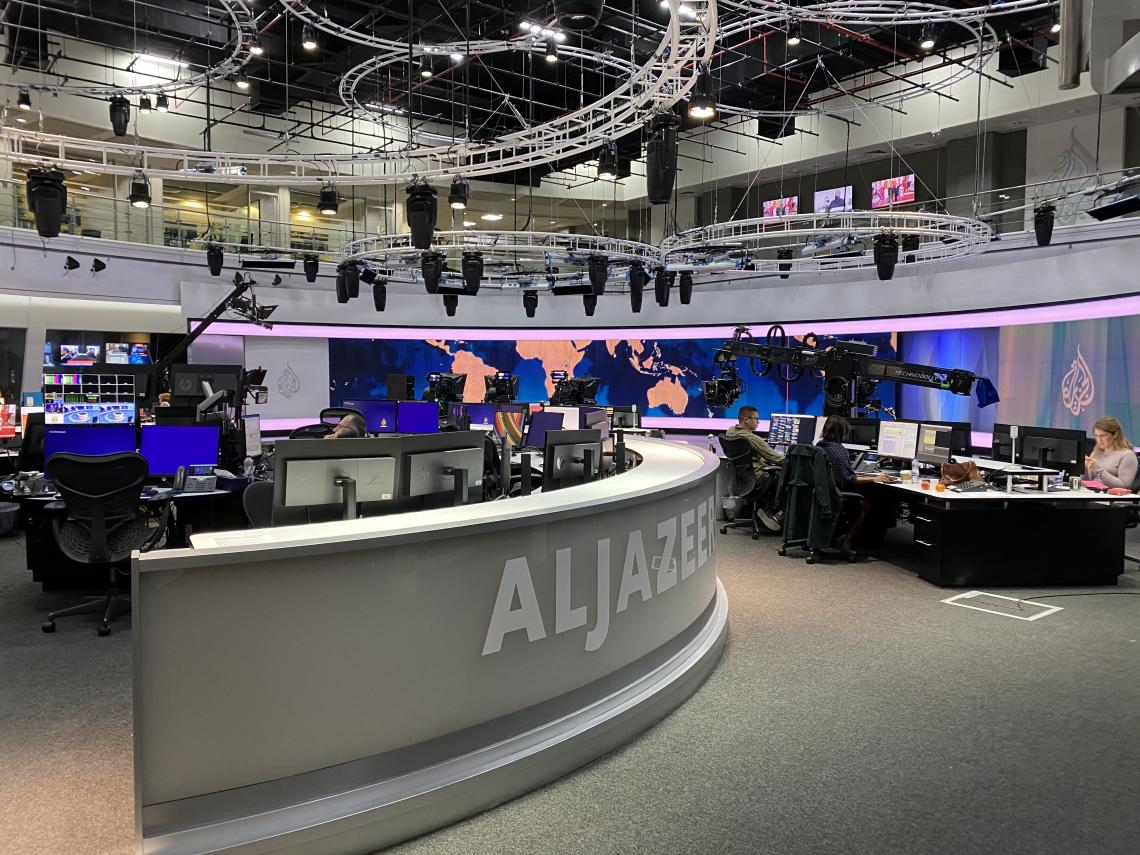Anti-government protests erupted in Tunis late on Sunday following President Kais Saied’s decision to suspend the parliament and the country’s prime minister.
Tunisian security forces stormed Al Jazeera’s office in Tunis and expelled journalists from the premises, the Qatar-based broadcaster said on Monday.
The head of the Tunis office said authorities failed to provide notice of the eviction prior to storming the facility by some 20 members of plain-clothed security forces.
Tunisian security forces later said they were acting according to “instructions”, Al Jazeera reported, noting journalists were forced to leave the office without being given the chance to take their equipment with them.
Security agents in #Tunisia break into #AlJazeera bureau, and force colleagues to evacuate.
They stormed our bureau without any prior notice. pic.twitter.com/hTW0aRrarJ— Wajd Waqfi وجد وقفي (@WajdWaqfi) July 26, 2021
“The security forces told us that we have no right to enter the office without showing a court order,” the Al Jazeera reporter said, adding that the security forces seized the keys of the office.
The storming of the office was condemned by the Norwegian Union of Journalists which said it “demands respect for the press and freedoms”.
The latest developments come as the North African country witnesses a series of protests against decisions made by the president to suspend the parliament.
After an emergency meeting with armed forces and security services, President Kais Saied announced he would be assuming executive power alongside a new prime minister following violent unrest over the government’s management of the Covid-19 pandemic, as well as the dwindling economy.
The crowds, which mainly comprised of youth, demanded the termination of parliament and early elections.
Ennahda leader and Ghannouchi’s political advisor Riad al-Shu’aibi told Al-Araby Al-Jadeed “what happened is a coup against the constitution and state institutions, seizing powers that the constitution does not grant to [President Kais] Saeid, including suspending parliament and lifting immunity from MPs”, noting that assuming broad executive powers “reminds us of the power grab by dictatorships following coups”.
“It seems that what happened today, including the attack (by protesters) on Ennahda offices was planned, to create unrest to justify the decisions taken by the president”, he added.
Saied’s assumption of executive power poses a challenge to the the Tunisian constitution of 2014 that divides power between the president, prime minister and the parliament.
In a statement to Reuters, Tunisian Parliament Speaker Rached Ghannouchi accused President Saied of launching “a coup against the revolution and constitution”.
The news agency also reported that there has been a sharp decline in bonds issued by the Central Bank of Tunisia in strong currency following Saied’s decisions.
Read also: Prominent Qatari analysts take to Twitter as Tunisia’s president ‘launches coup’
Earlier this year, reports suggested Saeid was planning a ‘soft coup’, though this was swiftly denied. Just a month later, London-based Middle East Eye claimed it had obtained a secret document detailed a planned coup in Tunisia.
On Monday, Qatar’s foreign ministry [MOFA] issued a statement calling on all parties involved in Tunisia’s political crisis to avoid escalation and engage in dialogue to overcome the current situation while upholding “the interests of the Tunisian people, prevail the voice of wisdom”.
The statement went on to express Qatar’s hope for preserving the North African country’s stability “and achieving the aspirations and ambitions of its people for further progress and prosperity”.
Tunisia has continued to grapple with an economic crisis and has struggled to respond to the Covid-19 pandemic, which has seen more than 18,000 people dead and thousands of daily positive cases.
During its peak earlier this month, over 9,000 daily Covid-19 cases were recorded in the North African nation which hosts a population of 12 million.
Follow Doha News on Twitter, Instagram, Facebook and Youtube
